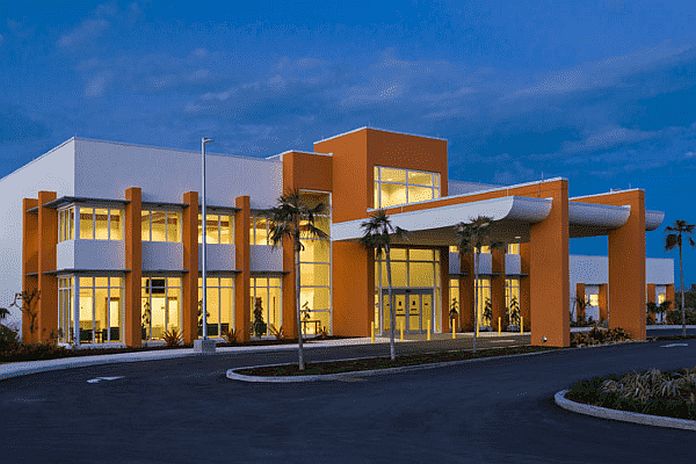GEORGE TOWN, Cayman Islands (CNS) – The original business model for Health City Cayman Islands (HCCI) was as a third pillar for the local economy catering to medical tourism. But since the East End facility opened in early 2014, it has gradually treated more and more local patients as well as regional ones.
However, as the hospital, established by the world-renowned surgeon, Dr Devi Shetty, now faces closed borders in the face of the COVID-19 pandemic, it has entirely switched focus for the foreseeable future.
The hospital temporarily closed its doors on March 13, after a cruise passenger who was treated there for a cardiac emergency turned out to be positive for COVID-19, the first case in the Cayman Islands. The man, who was from Italy, later, sadly died.
Since then the hospital has tested all of its staff, and the health professionals who were infected have all recovered. HCCI has also screened all of the emergency patients it has taken in for other health conditions and has isolated two patients who tested positive in its separate COVID-19 wing.
HCCI, which is expected to re-open completely in the coming weeks, is also directly involved in the Health Services Authority’s plan for managing a potential surge of COVID-19 as well as playing a key role taking test samples and performing much of the laboratory work.
But the impact of this virus goes beyond the hospital’s treating and testing for COVID-19. Dr Binoy Chattuparambil, HCCI’s clinical director and senior cardiac surgeon, recently told CNS that life after COVID-19 is going to be very different for everyone and everything, and healthcare will be no exception.
Strict social distancing, wearing masks in public and frequent hand washing are all likely to be a general part of life for many months as the community adapts to the new normal. Dr Chattuparambil said the virus is not going to disappear and what will differentiate excellent healthcare facilities from good ones will be the hygiene protocols that facilities put in place.
Health City will be catering to a lot more local patients, not just driven by its own need to keep the hospital open in the face of the closed borders, but to fill the gap that will be created by the decreased availability of international airlift. In addition, the focus on protecting patients from COVID-19 when they check in for other treatment will be critical to instilling confidence in the community, Dr Chattuparambil said.
To ensure that the virus is contained, HCCI has completely walled off COVID-19 patients from the rest of the hospital and created a ‘facility within a facility’, with its own ICU, ward, and staff, from housekeepers to physicians.
With state-of-the-art features not available at any other hospital in the Cayman Islands, and better than many facilities the world over, HCCI is able to offer world-class care, though the facility nevertheless faces some challenges.
Controversy has stalked the hospital since its conception. The proposed business model always raised questions, as the focus appeared to change from medical tourists from the US to patients around the Caribbean and here in the Cayman Islands.
It also took a long time for the local health insurance providers to cover patients attending the facility. Some believe that the bespoke legislation that was created, and since adapted, has given Health City a competitive advantage over other hospitals and private doctors in Cayman, which added to the trust issue with the community.
But in recent years the hospital has demonstrated its worth. Trust has improved through the actual patient care and huge success in saving lives and cutting-edge procedures. The facility is now seen as a welcome benefit to local health provision by a much wider cross-section of the community than it did when the facility first opened.
Shomari Scott, HCCI marketing director, said that while medical tourism remains in the hospital’s long-term future, it has been providing tertiary care to local people for many years now. He pointed out that taking emergency patients to Health City rather than waiting for as long as 16 hours for a medical evacuation for critically ill or injured patients has saved lives.
Scott pointed out that HCCI is a state-of-the-art facility, which offers cutting edge services and top-class care. This means Caymanians no longer need to travel overseas for almost any healthcare needs. He said only a fraction of local patients are now airlifted to other jurisdictions for care.
While the hospital will be ready to welcome back patients from the region whenever the borders are eventually opened, it remains to be seen if it will ever fulfill the original hope to trigger the third pillar to Cayman’s economy.
In the meantime, the facility will continue to provide care to people living here at a time when they need it the most.





